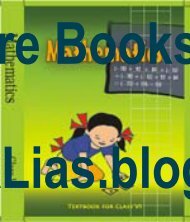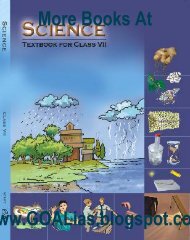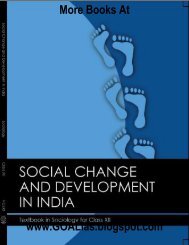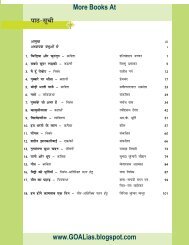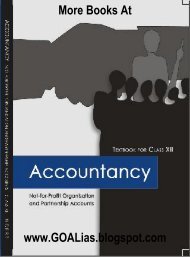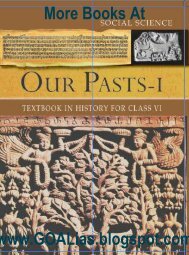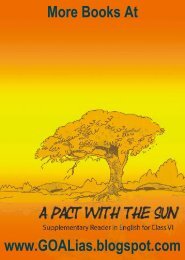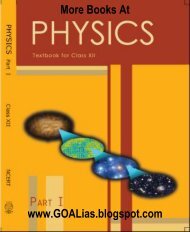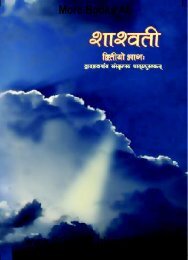t.com www.GOALias.blogspot.com www.GOALias.blogspot.com
t.com www.GOALias.blogspot.com www.GOALias.blogspot.com
t.com www.GOALias.blogspot.com www.GOALias.blogspot.com
- No tags were found...
You also want an ePaper? Increase the reach of your titles
YUMPU automatically turns print PDFs into web optimized ePapers that Google loves.
<strong>www</strong>.<strong>GOALias</strong>.<strong>blogspot</strong>.<strong>com</strong>112 Politics in India since IndependenceNow,even theSupreme Courtgave in! Whatwas happening toeveryone in thosedays?ConsequencesThis brought the agitation to an abrupt stop; strikes were banned;many opposition leaders were put in jail; the political situation becamevery quiet though tense. Deciding to use its special powers underEmergency provisions, the government suspended the freedom of thePress. Newspapers were asked to get prior approval for all materialto be published. This is known as press censorship. Apprehendingsocial and <strong>com</strong>munal disharmony, the government banned RashtriyaSwayamsevak Sangh (RSS) and Jamait-e-Islami. Protests and strikesand public agitations were also disallowed. Most importantly, underthe provisions of Emergency, the various Fundamental Rights ofcitizens stood suspended, including the right of citizens to move theCourt for restoring their Fundamental Rights.The government made extensive use of preventive detention. Underthis provision, people are arrested and detained not because they have<strong>com</strong>mitted any offence, but on the apprehension that they may <strong>com</strong>mitan offence. Using preventive detention acts, the government madelarge scale arrests during the Emergency. Arrested political workerscould not challenge their arrest through habeas corpus petitions.Many cases were filed in the High Courts and the Supreme Court byand on behalf of arrested persons, but the government claimed that itwas not even necessary to inform the arrested persons of the reasonsand grounds of their arrest. Several High Courts gave judgments thateven after the declaration of Emergency the courts could entertain awrit of habeas corpus filed by a person challenging his/her detention.In April 1976, the constitution bench of the Supreme Court over-ruledthe High Courts and accepted the government’s plea. It meant thatduring Emergency the government could take away the citizen’s rightto life and liberty. This judgment closed the doors of judiciary for thecitizens and is regarded as one of the most controversial judgmentsof the Supreme Court.There were many acts of dissent and resistance to the Emergency.Many political workers who were not arrested in the first wave,went ‘underground’ and organised protests against the government.Newspapers like the Indian Express and the Statesman protestedagainst censorship by leaving blank spaces where news items hadbeen censored. Magazines like the Seminar and the Mainstream choseto close down rather than submit to censorship. Many journalistswere arrested for writing against the Emergency. Many undergroundnewsletters and leaflets were published to bypass censorship. Kannadawriter Shivarama Karanth, awarded with Padma Bhushan, and Hindiwriter Fanishwarnath Renu, awarded with Padma Shri, returned theirawards in protest against the suspension of democracy. By and large,though, such open acts of defiance and resistance were rare.The Parliament also brought in many new changes to theConstitution. In the background of the ruling of the Allahabad High



